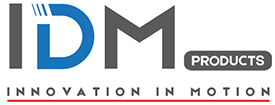Zero Defects, Infinite Insights: How AI is Redefining Quality Control
Mar 19th 2025
In today's hyper-competitive landscape, quality is no longer a mere aspiration – it's a non-negotiable imperative. For business and supply chain executives, the pursuit of flawless products and services requires a paradigm shift, one where traditional quality control methods give way to the transformative power of artificial intelligence (AI). This article delves into the fascinating ways AI is revolutionizing quality control, offering fresh perspectives and actionable insights for driving unprecedented levels of excellence.
Beyond Checklists: AI as the Quality Sentinel
Traditional quality control often relies on manual inspections and reactive measures, leading to inconsistencies, delays, and missed defects. AI, however, offers a proactive and intelligent approach, transforming quality control from a reactive process to a predictive and preventative one.
- Automated Visual Inspection: AI-powered computer vision systems can analyze images and videos of products in real-time, detecting even the smallest defects with unparalleled accuracy and consistency. Imagine a production line where AI-powered cameras automatically identify and reject products with minute flaws that would be invisible to the human eye.
- Predictive Quality Monitoring: AI algorithms analyze data from sensors, production systems, and other sources to predict potential quality issues before they arise. This enables businesses to take preventative measures, minimizing defects and reducing waste. Imagine a manufacturing plant where AI predicts potential equipment malfunctions that could lead to product defects, allowing for proactive maintenance and preventing costly downtime.
- Process Optimization: AI can analyze production data to identify bottlenecks and inefficiencies in the manufacturing process, suggesting improvements to optimize quality and reduce variability. Imagine an AI system that analyzes data from various stages of production, identifying areas where adjustments can be made to improve consistency and reduce defects.
- Root Cause Analysis: AI algorithms can analyze complex data to identify the root causes of quality issues, enabling businesses to implement targeted solutions and prevent recurrence. Imagine an AI system that analyzes data from customer complaints, production records, and supplier information to pinpoint the exact source of a recurring defect.
AI's Unexpected Impact on Quality
AI's influence extends beyond traditional inspection and monitoring, impacting quality in unexpected and profound ways:
- Personalized Quality Assurance: AI can tailor quality control procedures to individual product variations and customer preferences, ensuring a consistent and personalized experience. Imagine a food manufacturer that uses AI to adjust quality control parameters based on the specific ingredients and packaging of each product batch.
- Sustainable Quality Control: AI can optimize material usage, reduce waste, and minimize energy consumption in the quality control process, contributing to a more sustainable and environmentally friendly operation. Imagine an AI system that analyzes material usage during production and suggests adjustments to minimize waste and reduce environmental impact.
- Enhanced Supplier Quality Management: AI can analyze supplier data to assess their quality performance, identify potential risks, and optimize supplier selection and collaboration. Imagine an AI system that monitors supplier performance data and automatically flags potential quality issues, allowing for proactive communication and collaboration.
Maximizing AI's Potential in Quality Control
To fully leverage AI's transformative power in quality control, executives need to:
- Invest in Data Infrastructure: Ensure access to clean, accurate, and well-integrated data from various sources, including production systems, sensors, and customer feedback.
- Cultivate AI Talent: Build a team with the skills to develop, implement, and manage AI-powered quality control systems.
- Embrace a Culture of Continuous Improvement: Encourage experimentation, data-driven decision-making, and a relentless pursuit of quality excellence.
- Prioritize Ethical Considerations: Ensure AI systems are used responsibly and ethically, respecting data privacy and avoiding bias in decision-making.
The Future of Quality is Intelligent and Proactive
AI is ushering in a new era of quality control, transforming it from a reactive process to a proactive and intelligent one. By embracing AI's potential, businesses and supply chain executives can achieve unprecedented levels of quality, reduce costs, and enhance customer satisfaction. The future of quality is intelligent, data-driven, and powered by AI – a future where zero defects are not just a dream, but a tangible reality.

 US Dollars
US Dollars
